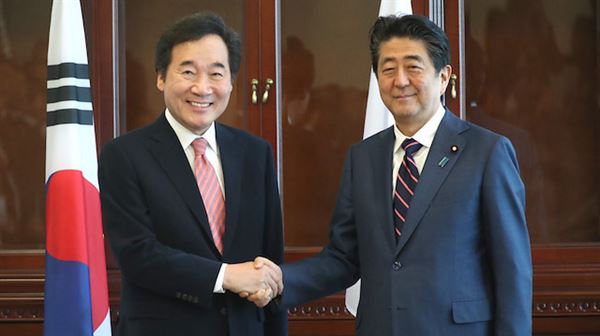South Korea's Prime Minister Lee Nak-yon is expected to meet Japanese Prime Minister Shinzo Abe next Thursday in what would be the highest-level talk
South Korea’s Prime Minister Lee Nak-yon is expected to meet Japanese Prime Minister Shinzo Abe next Thursday in what would be the highest-level talks between the two countries since Tokyo imposed export curbs in a deepening trade and diplomatic spat, Seoul officials said on Friday.
Lee is scheduled to visit Tokyo for Oct. 22-24 to attend Japanese Emperor Naruhito’s enthronement ceremony on behalf of President Moon Jae-in.
Both sides are trying to finalise a meeting between Lee and Abe on Oct. 24 following a banquet hosted by Abe the day before, Lee’s office said in a statement.
Relations between the neighbours are arguably at their lowest ebb since they normalised ties in 1965, after South Korea’s Supreme Court last year ordered two Japanese companies to compensate some wartime labourers. Tensions flared between the two following the ruling.
Lee said in an interview with Japan’s Asahi newspaper released on Friday that he might deliver a letter from Moon expressing his willingness to work together to resolve disagreement over the forced labour issue.
An official at Moon’s office said he and Lee had discussed the idea, but a decision on it had not yet been taken.
“Our fundamental position is that politics and economic issues should be handled separately and we hope to foster forward-looking relations and resolve problems through dialogue,” the official told reporters, speaking on condition of anonymity due to the sensitivity of the ties.
Japan says the wartime labour issue was settled under the 1965 treaty that normalised ties.
The dispute has since spilled over into trade and security, with Japan slapping export curbs and South Korea scrapping a bilateral intelligence-sharing pact.
